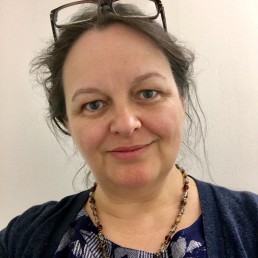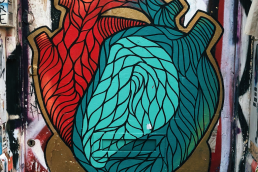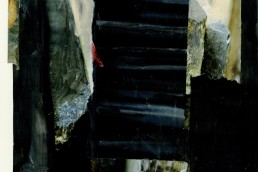By Dr Sara Shinton
Photography by Kathryn Polley
Edinburgh University’s Head of Researcher Development Dr Sara Shinton knows university can be tough, and encourages being proactive to counter stress and anxiety.
I feel imposter syndrome bubbling inside at the audacity of giving advice on being resilient. The prospect of these words appearing in print is paralysing. It’s tempting to bluff it out, but I want to start with explaining this because it’s critical to remember when you feel surrounded by confident people. I’m probably one of them. But what you see is rarely the full picture. It takes a lot to have the confidence to say “Is anyone else finding this tough?”
I hope you can find this confidence, because I’m one of the people at the University who will answer “Yes. It’s tough. But we’ll get you through it.” My role is to support our research students and staff, but the advice I’ll share here isn’t restricted to PhDs and postdocs. I hope there’s something here to help you recognise and manage your resilience.
I tend to describe resilience as a leaky bucket. For most of us, there will always be holes in the bucket and the contents will gradually leak out. We need to have two sets of strategies to keep the level reasonably consistent – to make sure the holes don’t grow and to keep topping up the water.
You need to recognise what causes the drop in your resilience and to work out what your strategies will be to manage this – these approaches stop the holes getting bigger. You also need to make sure that you invest time and effort in looking after yourself mentally and physically – the topping up of our metaphor.
You’ve probably got an idea already of what your holes are going to be. Interpreting feedback as a sign you are hopeless; taking on too much because you don’t want to say no; feeling like you can’t ask for help in case people realise you aren’t good enough; being homesick and embarrassed about it. Let me reassure you – our admissions processes are rigorous and we haven’t made a mistake. We think you’re good enough, but you’re learning. If you knew it all already, why would you be here?
After being honest with yourself about your triggers, work out a plan to follow before they happen. This should stop the holes growing! Find out in advance about what help is available to support your studies and how to access it if you need it. Think about the activities and social events that will make you feel better before you start to feel bad and put the structures in place (joining a club with regular meetings for example). Write your resilience plan down – even including simple things like which music to listen to and what films or shows to watch to perk you up.
With the holes recognized and under control, think about how you will top up the bucket. What makes you feel better about yourself and your situation? Is it certain people or particular activities? The great joy of being part of a huge student community like we have at Edinburgh is that you are almost certainly going to find people who share your enthusiasms, however obscure. Find your tribe and make time for the things that make you feel better whatever the challenges ahead.
I realised last month that it’s 30 years since I started my undergraduate studies. As I started to write this I realised that some of our incoming students were born in 2000, so it is perhaps inevitable that at some point I will start to sound more like a nagging parent than a cool friend. So, I’m going to embrace this fully. Too much alcohol and deep fried delicacies are not going to help here. Make sure that you maintain a healthy lifestyle with activity, fresh air, good food and enough sleep. You are about to take on a great challenge – doing a degree will stretch you and good results don’t come easy. Look after your mind and your body.
Having lapsed into some rather dull advice to close, you should feel free to disregard these middle-aged ramblings, but before you leave just be aware that I’m part of a substantial, but not always visible, infrastructure in every university that is here to support you. We know you can do this. We’re here to help.
Dr Sara Shinton
Dr Sara Shinton is Head of Researcher Development and Assistant Director of the Institute for Academic Development at the University of Edinburgh.
Kathryn Polley
Kathryn Polley is a photographer based in Helensburgh, Argyll & Bute. Winner of the 2017 Jill Todd Photographic Award and a Communication Design graduate of the Glasgow School of Art. Kathryn’s personal practice is an examination of the boundaries and territories we construct for ourselves to nurture a sense of belonging in the face of social, economic, mental and physical adversity.









